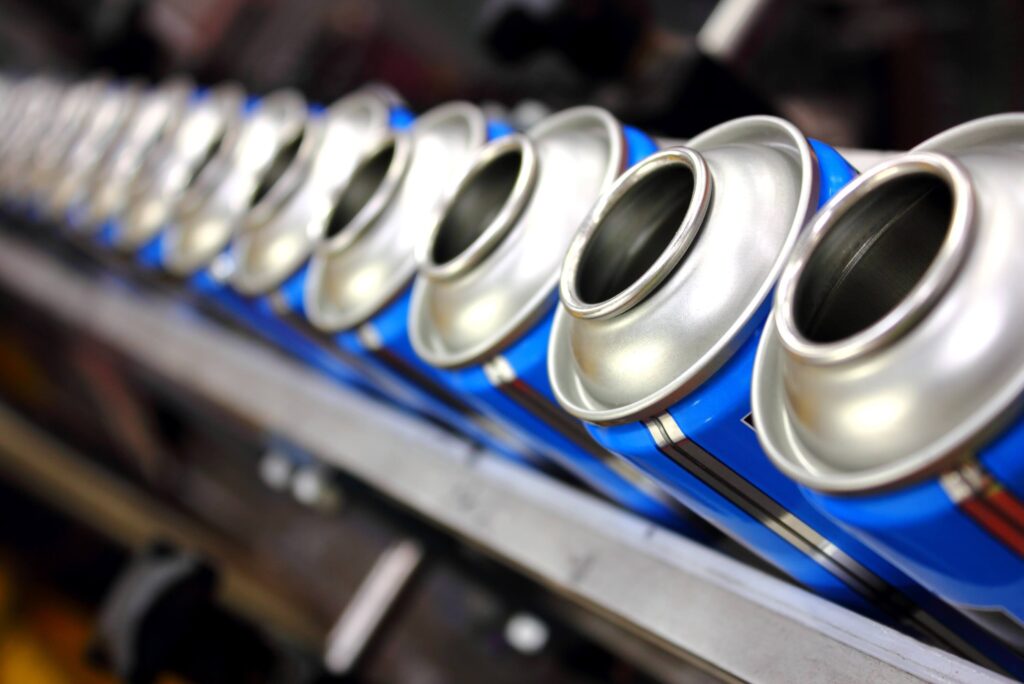Table of Contents
- Importance of De-Escalation Training for Manufacturing Environments
- Examples Where De-Escalation Skills Can Be Applied in Manufacturing
- Key De-Escalation Techniques for Manufacturing Teams
- How De-Escalation Training Creates a Safer Manufacturing Workplace
- Defuse’s Manufacturing-Specific De-Escalation Training
- Build a Safer, More Productive Factory Today
The manufacturing industry is characterized by precision, teamwork, and efficiency. With tight production deadlines, machine breakdowns, and shift rotations, tensions can run high, increasing the risk of workplace conflicts.
A small misunderstanding between machine operators, assembly line workers, or supervisors can quickly escalate if not handled properly. If emotions boil over, the consequences can be severe: workplace violence, safety violations, and costly production delays.
De-escalation training is essential. It teaches manufacturing teams and customer service professionals how to handle stressful situations, resolve disputes, and maintain a productive environment.

Importance of De-Escalation Training for Manufacturing Environments
When tensions rise and disputes aren’t resolved effectively in manufacturing plants, the impact goes beyond personal disagreements. It disrupts production flow, compromises safety, and affects overall efficiency.
Below are some reasons why de-escalation training is important in manufacturing.
1. Prevents Workplace Violence in High-Stress Environments
Factory floors are physically demanding, and long shifts, loud machinery, and repetitive tasks can wear workers down. A simple disagreement over task assignments or break schedules can turn into a heated argument, sometimes even resulting in violence in the workplace.
De-escalation training for manufacturing teams helps employees recognize warning signs of aggression. De-escalation also teaches them techniques to de-escalate situations before they spiral out of control.
2. Reduces Downtime From Production Delays
When an assembly line slows down due to a bottleneck, workers may blame each other. If a machine operator is struggling with equipment settings or a quality control inspector requests multiple reworks, frustration builds up.
Effective de-escalation techniques help teams stay focused on solutions instead of turning to blame, keeping the production process smooth.
3. Helps Supervisors Manage Shift Tensions
Supervisors are responsible for ensuring production targets are met while keeping workers motivated. But when employees feel unfairly treated or overworked, conflicts can emerge.
De-escalation training teaches supervisors how to remain calm, use verbal de-escalation methods, and create a productive environment where workers feel heard.
4. Prevents Conflicts Over Equipment Breakdowns
A broken conveyor belt or a malfunctioning CNC machine can push an already-stressed team over the edge. Workers might argue about who’s at fault or pressure maintenance crews for immediate fixes.
Training in de-escalation skills helps teams manage stressful situations, communicate effectively, and follow proper troubleshooting steps instead of escalating tensions.
5. Keeps Safety Compliance in Check
Workplace safety violations often occur when frustrated employees take shortcuts under pressure. Conflicts between machine operators and safety inspectors over protocol enforcement can make matters worse.
When employees learn de-escalation methods, they can handle disagreements professionally and ensure compliance without unnecessary confrontation.
6. Boosts Morale and Employee Retention
High turnover is a problem in manufacturing. A conflict-ridden workplace only makes it worse. Training programs in conflict resolution help teams develop positive communication, which reduces employee dissatisfaction. When workers feel respected and valued, they’re more likely to stay, improving overall efficiency and teamwork.
Examples Where De-Escalation Skills Can Be Applied in Manufacturing
Conflicts in manufacturing can emerge in various scenarios, from shift rotations to equipment troubleshooting. Below are some specific situations where skills for de-escalation play a vital role.
Managing Shift Handovers Without Conflict
Factories that operate 24/7 require seamless transitions between shifts. If the outgoing crew leaves unfinished work or fails to communicate machine issues, incoming workers may feel frustrated and blame them.
Without proper handling, these tensions can escalate into verbal disputes. De-escalation skills help shift managers mediate conflicts and encourage proactive steps to improve communication.
Defusing Arguments on the Assembly Line
Workers on a production line rely on each other to keep things moving. If one station falls behind, the next in line may feel pressured and lash out. Team leaders can utilize verbal de-escalation strategies and body language cues to prevent unnecessary conflicts while keeping production steady.

Handling Supplier or Delivery Delays Without Escalation
Manufacturers depend on timely deliveries of raw materials. Any delay can throw off the entire supply chain. If an order is late or incorrect, tensions can flare between warehouse teams, purchasing managers, and logistics staff.
De-escalation training teaches employees how to negotiate calmly and assess the situation before reacting impulsively.
Addressing Employee Complaints About Work Conditions
Manufacturing jobs can be physically demanding, and disputes over workload, pay, or overtime are common. If an employee voices frustration about workplace issues, dismissing their concerns can lead to resentment.
Training sessions on effective conflict management show HR personnel and managers how to acknowledge concerns while guiding the conversation toward constructive solutions.
Key De-Escalation Techniques for Manufacturing Teams
Manufacturing teams must be equipped with the right de-escalation techniques to handle workplace challenges effectively. Here are some critical strategies tailored for factory settings.
1. Identify Early Signs of Conflict
The best way to de-escalate a tense situation is to spot it before it worsens. Employees and supervisors should be trained to recognize non-verbal cues such as clenched fists, raised voices, or defensive postures. Once identified, early intervention prevents conflict escalation.
2. Use Verbal De-Escalation on the Factory Floor
How a message is delivered can determine whether a situation calms down or escalates. Workers should use a neutral tone, avoid accusatory language, and listen actively.
Instead of saying, “You always slow down the line,” a better approach is, “Let’s figure out how we can stay on track.”
3. Control Body Language to Reduce Tension
Body language plays a significant role in de-escalation. Crossing arms, pointing fingers, or standing too close can make someone feel defensive. Employees who maintain an open posture, steady eye contact, and relaxed movements can help de-escalate conflicts before they intensify.
4. Encourage Collaborative Problem-Solving
Instead of blaming coworkers when something goes wrong, teams should be trained to assess the problem together. If a machine breaks down, rather than arguing over responsibility, workers can focus on finding a fix.
5. Teaching Emotional Regulation Under Pressure
Not every problem has an immediate solution, and frustration is natural. However, letting emotions dictate behavior can make matters worse.
De-escalation training helps employees practice emotional intelligence, encouraging them to take deep breaths, step back, and rethink their responses before reacting.
How De-Escalation Training Creates a Safer Manufacturing Workplace
Safety is the backbone of any manufacturing operation. However, safety isn’t just about wearing protective gear or following OSHA regulations. It’s also about preventing workplace conflicts before they escalate into dangerous situations.
Reduces the Risk of Physical Altercations on the Factory Floor
Tensions can run high in manufacturing. Workers deal with repetitive tasks, demanding quotas, and strict deadlines, all while working in loud environments where clear communication is difficult. When frustration builds up, a simple disagreement can escalate into a tense situation that leads to verbal or even physical altercations.
With proper de-escalation training, employees learn how to handle confrontations calmly, using verbal de-escalation techniques and non-verbal cues like open body language. Instead of reacting aggressively when a coworker blames them for a delayed shipment or a broken machine, a trained worker can redirect the conversation toward solutions.

Prevents Stress-Related Safety Violations
A stressed-out worker is more likely to cut corners, ignore safety protocols, or make rushed decisions that put others at risk. For example, an overworked forklift operator under pressure to move inventory quickly might bypass safety checks, leading to a collision or product damage.
De-escalation training teaches employees to remain calm in high-stress environments. By recognizing warning signs of burnout, frustration, or panic, supervisors can step in and provide proactive support before a situation spirals out of control.
Improves Team Communication and Reduces Errors
In manufacturing, miscommunication can be costly. A quality control specialist might reject a batch of products, frustrating the assembly line team. A maintenance crew might take longer than expected to fix a machine, leaving operators idle.
If these misunderstandings aren’t handled properly, they can lead to workplace conflicts that disrupt production flow. With de-escalation training, workers develop better communication techniques, helping them express concerns clearly and professionally.
Strengthens Leadership in Crisis Situations
Supervisors and floor managers must enforce policies, deadlines, and safety standards while managing diverse teams. If an employee refuses to follow safety guidelines or if a team is frustrated with overtime demands, it’s the supervisor’s job to step in and prevent the situation from escalating.
Supervisors trained in de-escalation techniques can assess conflicts quickly, use verbal de-escalation strategies, and redirect conversations toward constructive solutions.
Lowers Employee Turnover and Boosts Morale
When workers experience constant conflict, stress, or lack of support, they’re more likely to quit. High turnover rates cost manufacturers time and money in hiring, training, and lost productivity.
De-escalation training helps create a positive work environment where employees feel valued, heard, and respected. When conflicts are resolved professionally, workers are more likely to stay engaged and committed to their jobs.
Defuse’s Manufacturing-Specific De-Escalation Training
Defuse De-escalation Training understands that manufacturing teams face unique challenges. Unlike corporate offices, factories operate in physically demanding, high-pressure environments where miscommunication, stress, and fatigue can lead to serious consequences.
Our de-escalation training programs are tailored to real-world manufacturing scenarios, helping teams handle conflicts professionally and keep operations running smoothly.
Customized Training for Manufacturing Professionals
We offer both in-person and online conflict management training designed specifically for:
- Assembly line workers dealing with shift disputes and production delays
- Machine operators handling equipment malfunctions and blame-shifting
- Supervisors managing team conflicts, compliance issues, and disciplinary actions
- Warehouse teams handling delivery delays and supply chain bottlenecks
- Quality control staff navigating production errors and rejected batches
Each conflict management training session includes real-world role-playing exercises, interactive discussions, and customized strategies that fit the fast-paced nature of manufacturing plants.
Key Components of Defuse’s De-Escalation Training
- Recognizing Early Signs of Conflict: Helps teams spot non-verbal cues and warning signs before situations escalate.
- Verbal De-Escalation Strategies: Teaches workers how to diffuse heated conversations and redirect tension into problem-solving.
- Managing High-Stress Situations: Trains employees and supervisors to remain calm, think clearly, and respond strategically under pressure.
- Preventing Workplace Violence: Educates teams on how to de-escalate aggressive behavior before it turns physical.
- Strengthening Team Communication: Teaches active listening, conflict resolution, and positive communication to improve team collaboration.

Flexible Training Formats for Maximum Accessibility
Defuse offers multiple conflict resolution training formats to accommodate the needs of manufacturing teams:
- In-person de-escalation training workshops at manufacturing sites for hands-on learning
- Virtual conflict resolution training programs for remote teams or multi-location operations
- Self-paced online courses for employees needing flexibility in their learning schedule
Build a Safer, More Productive Factory Today
In manufacturing, time is money, and unresolved conflicts waste both. Fights on the floor, miscommunication between shifts, and high turnover caused by a toxic work environment can cripple productivity. Without the right de-escalation skills, one argument can shut down an entire assembly line, delay shipments, or result in serious safety incidents.
De-escalation training aims to protect your workforce, reduce downtime, and improve efficiency. A well-trained team knows how to de-escalate situations before they spiral out of control, creating a safer, more productive workplace.
Don’t wait for conflict to cost your company time, money, or safety violations. Invest in Defuse’s de-escalation training today and equip your team with the tools they need to handle challenges professionally. Contact Defuse now to schedule a conflict management training session for your manufacturing team!
Our Trainers
When you work with the Defuse Team, you always work with a Program Director, a Trainer, and an Account Executive. Here are just a few of our fantastic trainers.
Need De-Escalation Training For Your Team?
Get in touch today to learn how we can improve coworker and/or customer relationships at your company.













